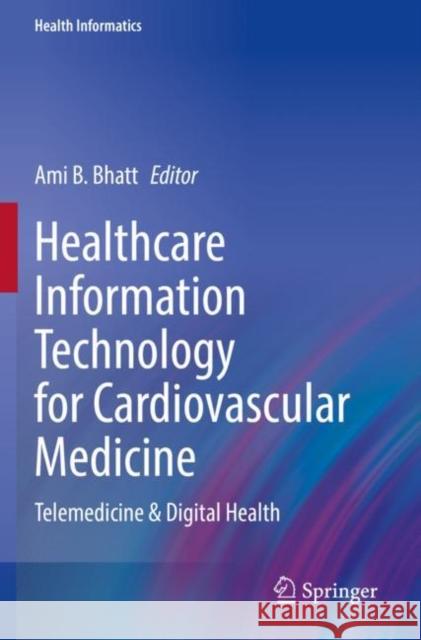Healthcare Information Technology for Cardiovascular Medicine: Telemedicine & Digital Health » książka
topmenu
Healthcare Information Technology for Cardiovascular Medicine: Telemedicine & Digital Health
ISBN-13: 9783030810320 / Angielski / Miękka / 2022
Healthcare Information Technology for Cardiovascular Medicine: Telemedicine & Digital Health
ISBN-13: 9783030810320 / Angielski / Miękka / 2022
cena 201,24
(netto: 191,66 VAT: 5%)
Najniższa cena z 30 dni: 192,74
(netto: 191,66 VAT: 5%)
Najniższa cena z 30 dni: 192,74
Termin realizacji zamówienia:
ok. 22 dni roboczych.
ok. 22 dni roboczych.
Darmowa dostawa!
This unique book comprehensively reviews how information technology is changing cardiovascular medical practice. Chapters include a wide range of topics from specific technologies and virtual care education to large system implementation. Extensive illustrative material and specific case studies are included throughout to reinforce key concepts and enable the reader to develop an understanding of how information technology is impacting medical practice. Health equity, medicolegal ethics, and regulatory considerations are also covered. Healthcare Information Technology for Cardiovascular Medicine: Telemedicine & Digital Health provides a foundation for better understanding how these technologies impact cardiovascular care delivery. Its comprehensive analysis enables healthcare providers and other stakeholders to enhance clinical practice through digital health implementation.











